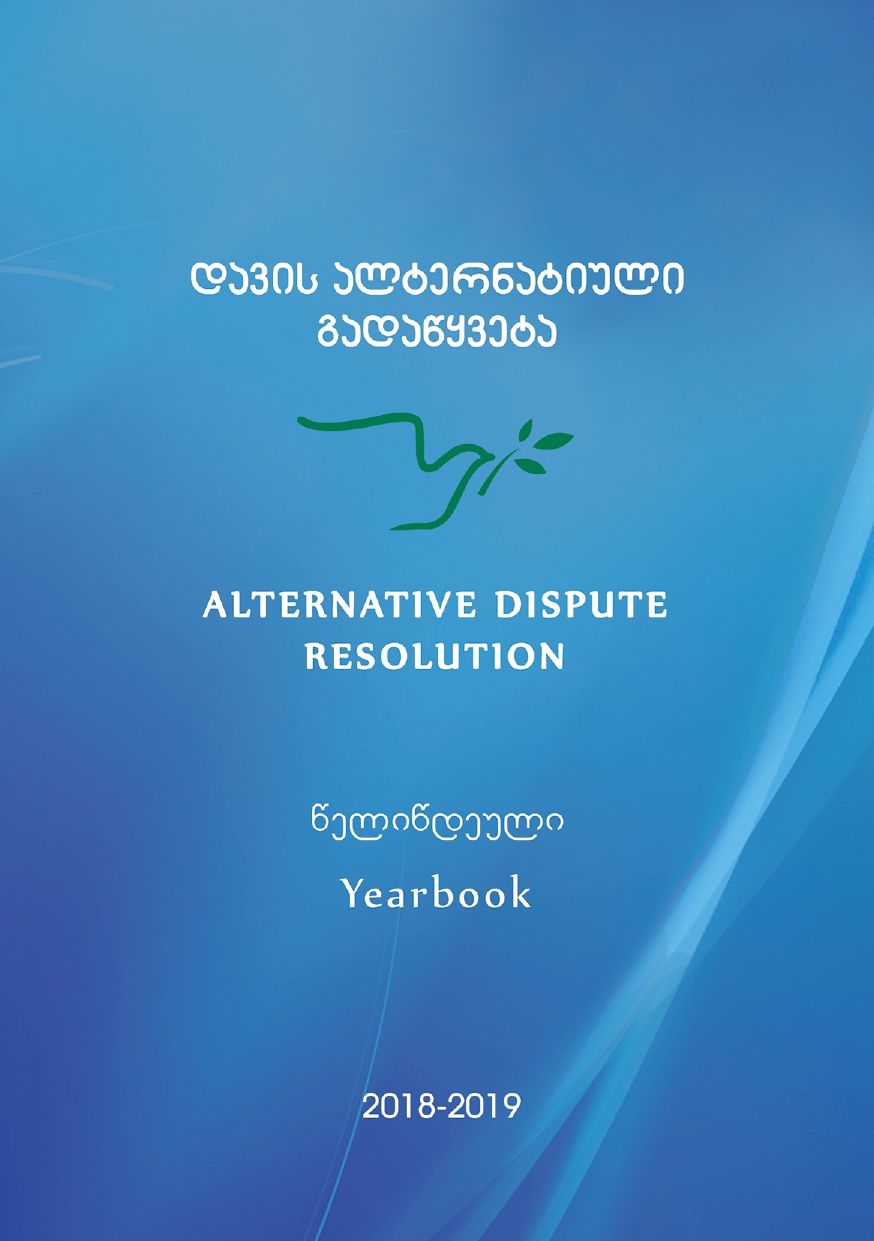Ethical Duties of an Advocate Representing a Client in Mediation (Comparative Legal Analysis of Georgian and American Models)
Keywords:
mediation, the process of mediation, an advocate representing a client, ethical duties of an advocate, the code of ethics, the ethics commission, primacy of client’s interest.Abstract
Mediation as a means of alternative dispute resolution is recognized by western legal systems. It has developed at an exceptionally fast pace in the United States of America, which, of course, was accompanied by discussions and reasoning in literature accumulating valuable knowledge and experience that undoubtedly must interest lawyer and non-lawyer specialists working in the field of mediation.
Creation of a legislative base necessary for the development of the field of mediation in Georgia is underway. After the adoption of amendments to the procedural legislation, the parliament of Georgia admitted for discussion a draft law on mediation, which will be voted on in near future.
The participants of a mediation process have a special status, role and function, which they must carry out in order for mediation to be successful. A special role and function is borne by the advocate representing a party, who much like in case of court or arbitration proceedings, seeks to achieve the best possible outcome for the party; however, as opposed to a classical dispute, advocates engage in communication of a different nature with the participants of the mediation process and do not act within the scope of the predetermined procedural restrictions. The representative powers of advocates are by no means unrestricted and they may be held liable for various breaches of law. The present article identifies and analyzes such provisions with the aim of their further improvement and development, and includes recommendations.
References
Law of Georgia on Advocates, Legislative Herald, 20/06/2001, https://matsne.gov.ge/ka/document/view/15472>, [02.08.2019].
Civil Code of Procedure of Georgia, Legislative Herald, 14/11/1997, https://matsne.gov.ge/ka/document/view/29962, [02.08.2019].
Law of Georgia on Personal Data Protection, Legislative Herald of Georgia, 28/12/2011,
https://matsne.gov.ge/ka/document/view/1561437?publication=19, [02.08.2019].
Chitashvili N., Framework for Regulation of Mediation Ethics and Targets of Ethical Binding, “Journal of Law”, №1, TSU Publishing House, 2016, 26-27 (In Georgian).
Chitashvili N., Specificity of Some Ethical Duties of Lawyer Mediator and Necessity of Regulation, “Journal of Law”, №2, TSU Publishing House, 2016, 32–33 (In Georgian).
Nolan-Haley M. Jacqueline, Lawyers, Clients, and Mediation, 1998, Notre Dame L. Rev., Fordham, 1998, 7.
Oberman S., Confidentiality in Mediation: An Application of the Right to Privacy, Ohio State Journal on Dispute Resolution, Vol 27:3, 2012, 13.
Roth B.J., Ethical Considerations for Advocates in Mediation, Massachusetts Lawyer’s Weekly, 2005, 2.
Sherrill J. A., Ethics for Lawyers Representing Clients in Mediations, Atlanta, 2012, 2- 3, 5.
Strong G. E., Role of the Lawyer in Arbitration, Mediation and Conciliation, Labor Law Journal, Vol. 7, No. 7, Nashville, Tennessee, 1956, 1.
Totladze L., Gabrichidze G., Tumanishvili G., Turava P., Chachanidze E., Explanatory Legal Dictionary, Tbilisi, 2012, 244 (In Georgian).
Disciplinary Chamber of the Supreme Court of Georgia, Decision №DS-S/5-15 6 May 2015, 4-5.
LEPL Ethics Committee of the Georgian Bar Association Decision dated 16 June 2014, 5-6.









